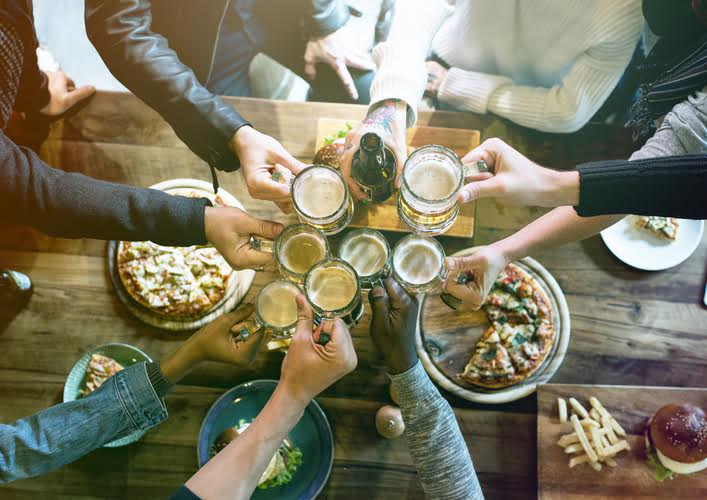On the state level, it appears to be highest in New Hampshire and Delaware, and lowest in Utah. Among adults who don’t drink, the most common reason given is that they just don’t want to, the Gallup survey found. About a quarter of nondrinkers (24%) say in an open-ended question that they have no desire to drink or do not want to.
- Our News, Politics and Culture teams invest time and care working on hard-hitting investigations and researched analyses, along with quick but robust daily takes.
- A nonlinear relationship between alcohol consumption and epigenetic age is very interesting.
- The study was conducted in over 2,000 individuals including both healthy participants and persons living with HIV.
- Excessive drinking long-term can cause health problems including high blood pressure, stroke, heart disease, and digestive issues, as well as certain types of cancer.
- Ideally when I drink, I’ll pause and ponder the intriguing viognier in my glass before raising it to my lips.
- For this reason, we can infer that alcohol may have a greater impact on the skin of people who are older rather than on younger skin,” Zeichner said.
Studies in older people have not evaluated cost-effectiveness in older alcohol misusers, though findings in the adult population do point to savings from interventions [26]. Given this background of serious complications from alcohol consumption in older people the study by Kelly et al. [11] is instructive. Their systematic review focuses on primary prevention rather than the treatment of dependent drinkers. They reported does alcohol make you look older cautious supportive evidence for interventions in reducing excessive alcohol consumption in older drinkers. Older people are being admitted to hospital for alcohol problems in increasing numbers. A recent systematic review reports cautious supportive evidence for primary prevention interventions in reducing excessive alcohol consumption in older drinkers, but does not focus on treatment of dependent drinkers.
It Can Affect Your Heart
If your 2024 goals include plans to drink in moderation, here’s what she wants you to know. Moreover, if a person has a serious reaction after drinking alcohol, they should consult a doctor sooner to determine what may be causing their symptoms. However, if they want to have tests to check their alcohol intolerance, they can contact a doctor to ensure they are drinking safely.
- If you want to cut down on alcohol but the all-or-nothing nature of Dry January is too challenging, the “One Week No Booze Method” might be for you.
- At the same time, there are seemingly insuperable difficulties in ensuring the effective interventions are delivered in coordinated services, agencies and professionals at this time in the UK.
That said, it’s never too late to start making healthier decisions, and Dry January may be the perfect time to start. Americans drink less beer and more wine than they used to, according to the NIAAA. Since 1970, the peak year for beer consumption was 1981, when the typical American age 21 or older drank 36.7 gallons. Over those four decades, the amount of wine the average American drank annually rose from 3.2 gallons to 3.8 gallons.
Tipping Culture in America: Public Sees a Changed Landscape
If you want to stay as healthy as possible and feel your best as you age, do you have to give up alcohol completely? No, Landsverk emphasizes, and it’s important to remember to remember that other factors influence the impact alcohol has on your health and well-being, such as if you’re living with a disease like obesity or hypertension. In your 40s, more health risks begin to pop up, Landsverk explains. “Obesity, diabetes, hypertension and high cholesterol all increase the risk for heart attacks, strokes and small stroke dementia,” she said.

And if your body is dehydrated, your skin is absolutely dehydrated. Americans 55 and older, on the other hand, are more likely than their counterparts two decades ago to say they do all of these things. Among those ages 35 to 54, the shares who do these things have remained relatively stable over time.
Alcohol and healthy ageing: a challenge for alcohol policy.
This article looks at the links between alcohol and sickness and provides an overview of alcohol intolerance, including the signs, when to consult a doctor, and causes. Finally, it examines how alcohol tolerance changes over time and offers support and guidance on alcohol use. “In your eighties, you may have osteoporosis or brittle bones,” says Dr. Sonpal. People also sometimes start drinking more with retirement, which brings more time and opportunity, says Jeffrey Johnson, an addiction medicine specialist at Northwestern Medicine Central DuPage Hospital in Winfield, Illinois. Today more than 10 percent of adults 65 and older are binge drinkers, according to a 2019 study of nearly 11,000 U.S. adults published in the Journal of the American Geriatrics Society. Older people should also limit their alcohol consumption to ensure that they aren’t using alcohol to numb themselves to painful feelings.
Follow-up periods were relatively short, particularly for a condition that may be long term. How do we account for any differences in the definition of ‘brief’ intervention? Other interventions including control interventions, usual care, can be very variable. They have pointed to some of the difficult methodological issues in reviewing this area. Not only was there a considerable heterogeneity in the study populations but different assessment instruments were used. Thus, direct comparison between individual studies was difficult.
Women who only drank on one or two days each week had relatively little increased chance of healthy aging. On the other hand, those who drank at least five days each week did much better. Research has found that drinking alcohol in moderation is linked with longer life.